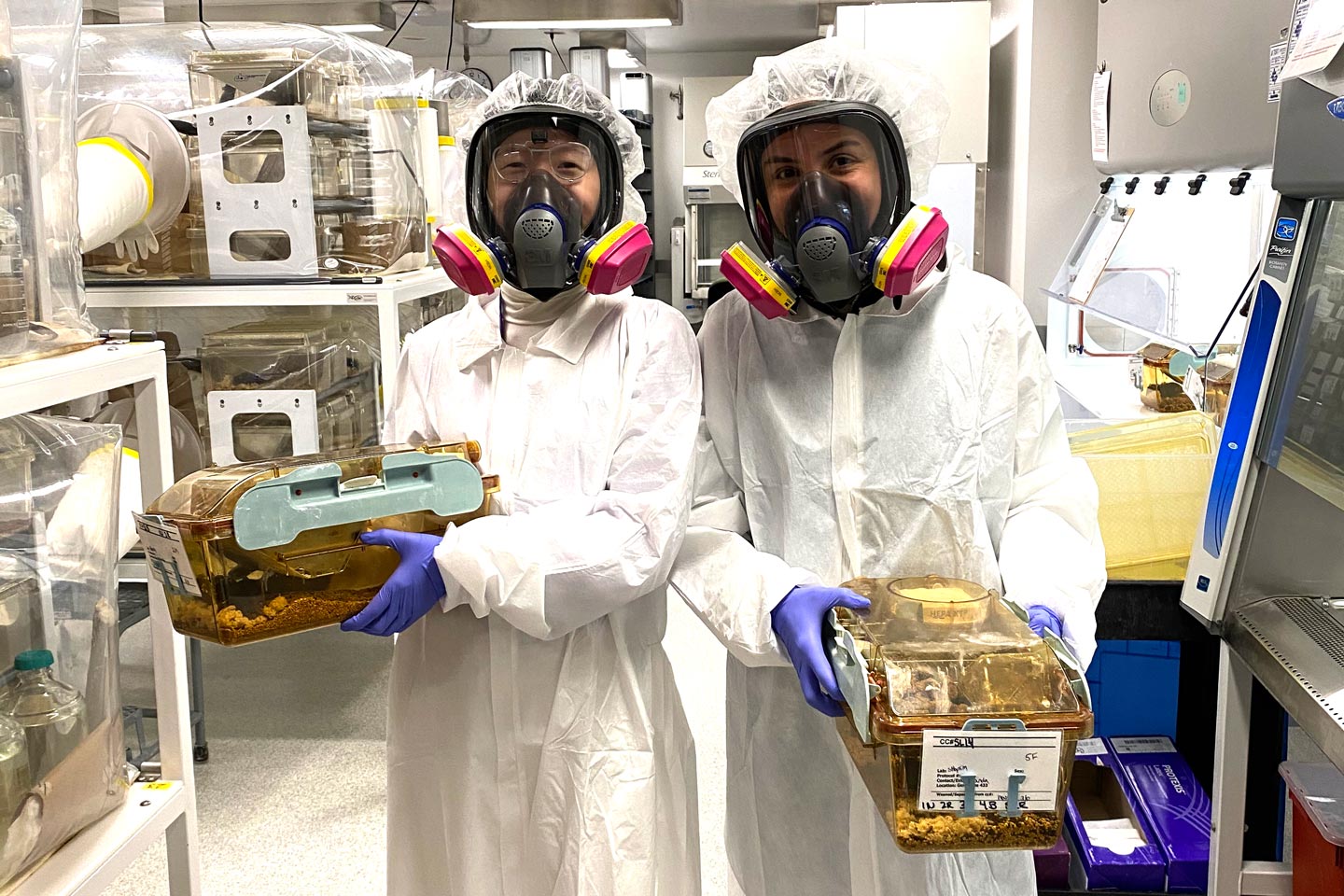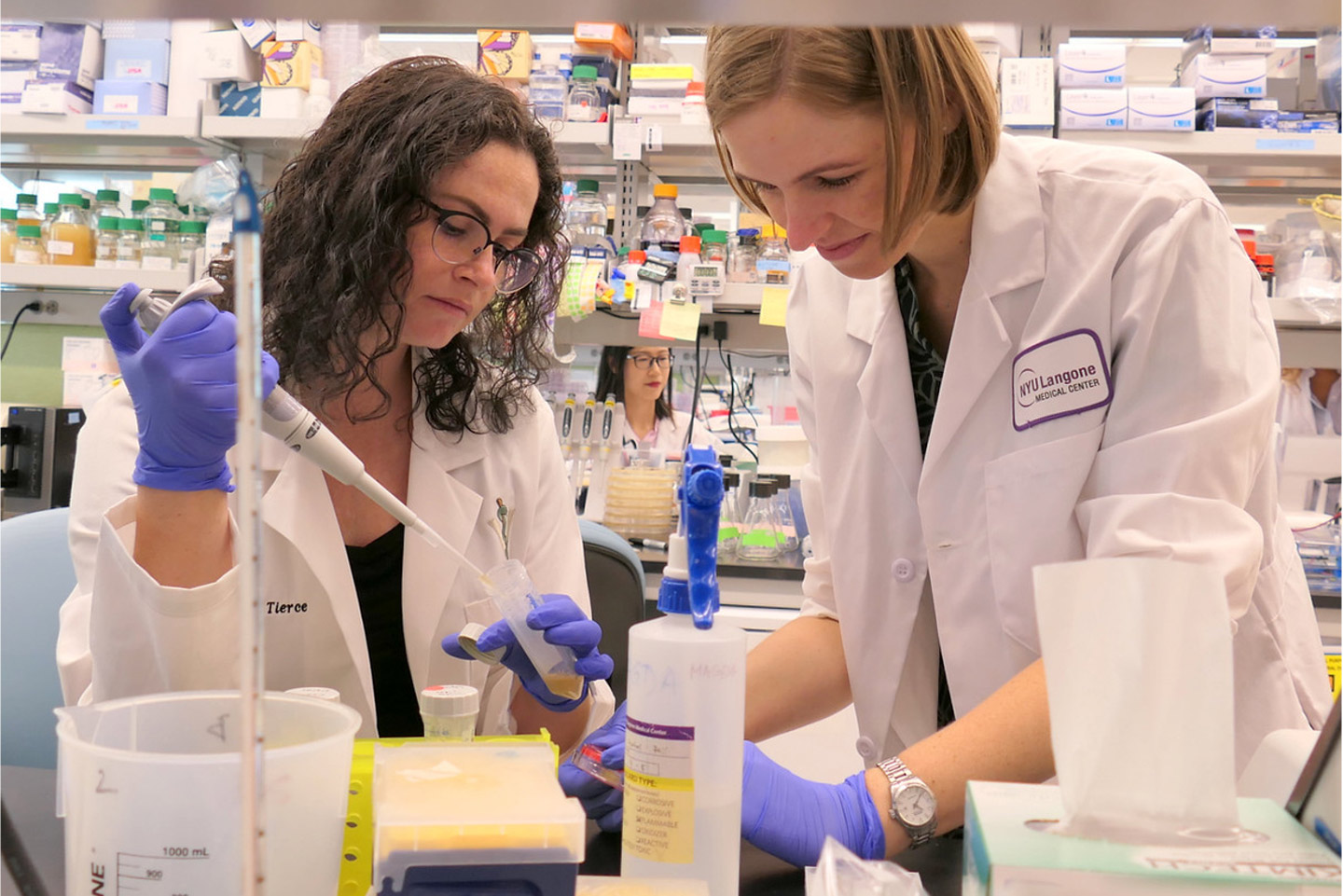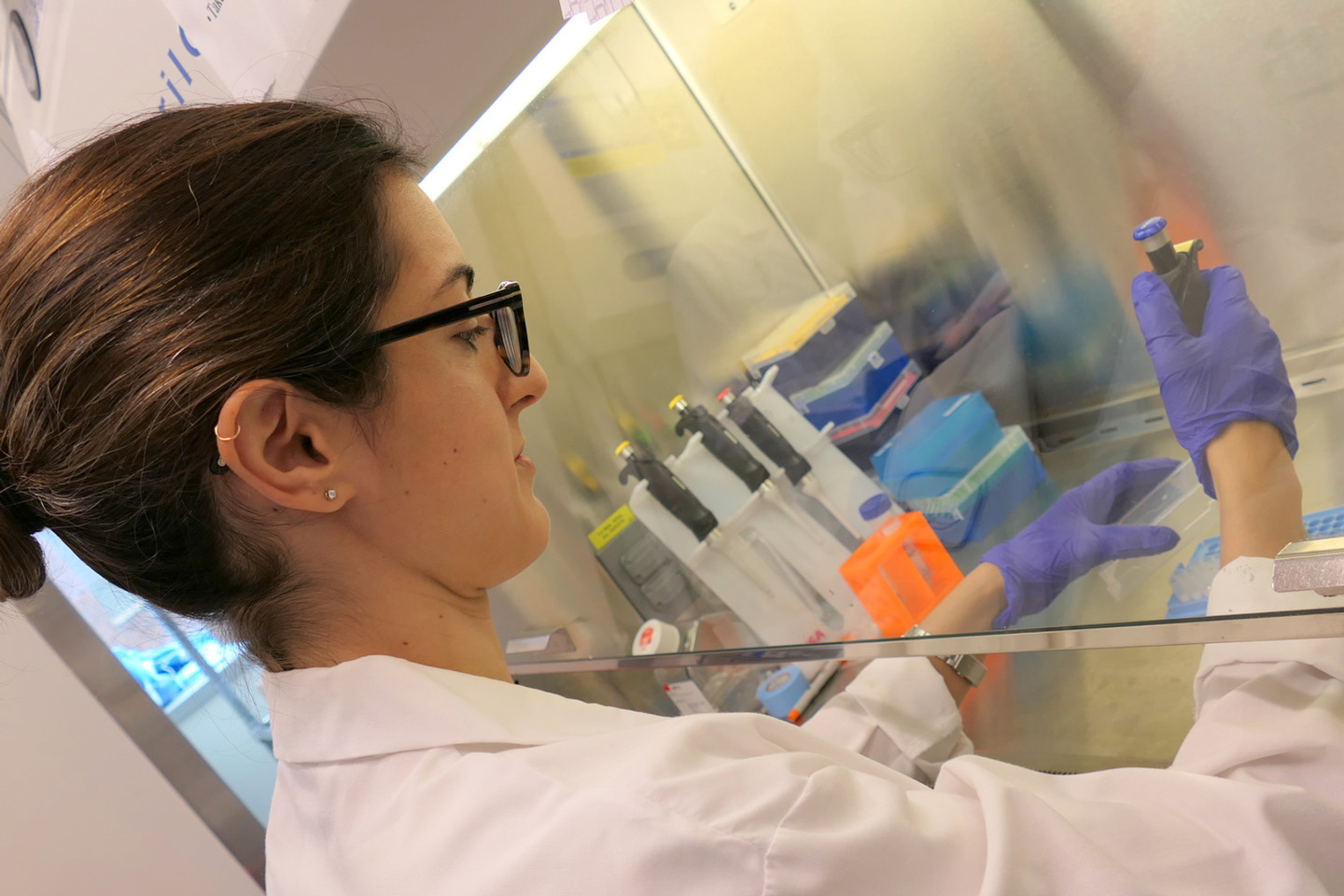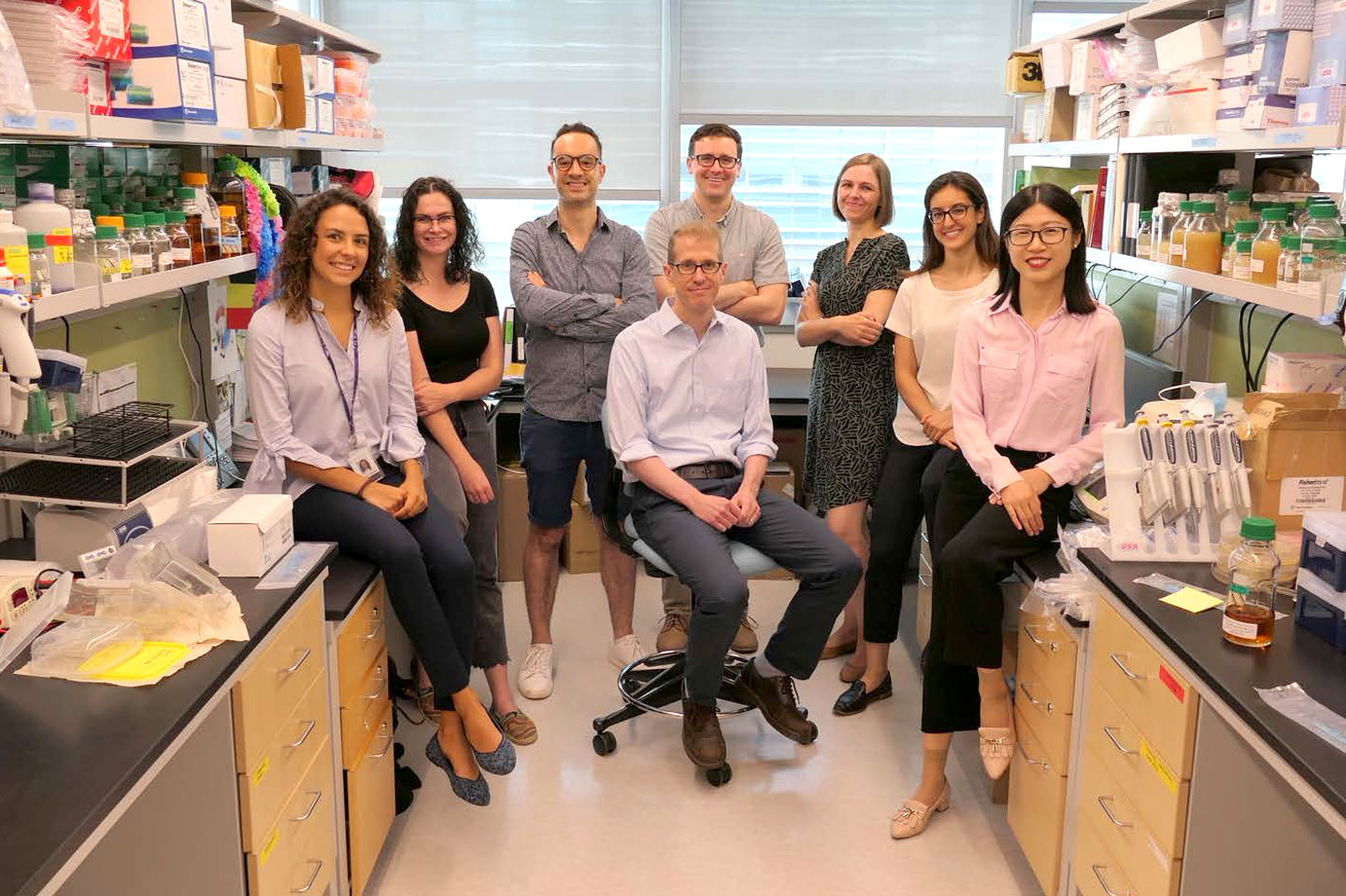
Shopsin Lab Research
Investigators in NYU Langone’s Shopsin Lab address the general problem of understanding host and pathogen interactions. Our laboratory uses an interdisciplinary research strategy that employs techniques such as genome sequencing, protein and gene expression analysis, molecular population genetic analysis, relevant animal model systems, and analysis of host factors. These tools are used to gain new information about the basis of infections caused by the human pathogenic bacterium Staphylococcus aureus. All of the laboratory's work involves extensive collaboration with local, national, and international investigators with diverse areas of expertise.
In one project, we study the ways in which S. aureus adapts to human hosts during the course of infection. This work is performed in collaboration with investigators at NYU Langone and local institutions. Antibiotic-resistant strains of S. aureus, called MRSA, kill an estimated 19,000 Americans per year: more than HIV, and more than Streptococcus pneumoniae, Neisseria meningitidis, Haemophilus influenzae, and Streptococcus pyogenes combined. Yet no effective vaccine is available, despite decades of study. Our goal is to use a multi-modal strategy to determine how virulence and changes in infecting population composition affect clinical manifestations, such as how S. aureus shifts from an innocent member of our normal flora to an invasive pathogen. The project involves extensive (“deep”) comparative genome sequencing and genetic polymorphisms analysis using MRSA strains. Recent work has identified mutation of an important virulence circuit involved in the pathogenesis of hospital infections. The work will provide the basis for the development and inform the use of drugs and vaccines interfering with these mechanisms.
In another project, we developed a mouse model of S. aureus colonization and transmission. Because S. aureus is an inhabitant of normal human flora, acquisition and colonization is an initial and crucial step in pathogenesis. This work is done in collaboration with investigators across NYU Langone. The team uses a comprehensive combination of genetic and molecular biological approaches to identify and characterize bacterial genes expressed during colonization-transmission. We also investigate how and when bacterial products interact with the host and colonizing flora (“microbiota”). The colonization model is useful for evaluating the role of specific factors in persistence of colonization and transmission, as well as the ability of novel therapies that target those factors to eradicate or prevent staphylococcal colonization. This will give patients and hospitals a surer way of avoiding healthcare-associated S. aureus infection.
A third project is designed to elucidate the molecular genetic events contributing to outbreaks of MRSA infection. This work is done in collaboration with several groups of local and NYU Langone-based investigators. The team uses a comprehensive sample of MRSA strains recovered from patients in a high-risk community in New York City, and comparative genome sequencing to identify genetic polymorphisms. The goal of this line of research is to understand precise temporal patterns of strain spread by defining genetic changes and virulence circuits in the pathogen that influence its success. Recent work has identified acquisition of a novel transmissible genetic element involved resistance to topical biocides, agents commonly used for decolonization and infection prevention, as a key event in the spread of an outbreak.
Research Partners
As part of our interdisciplinary and collaborative mission, we partner with research programs at NYU Langone.
Antimicrobial-Resistant Pathogens Program
Frequent Collaborators
We work with investigators at NYU Langone and at other institutions in New York City.
NYU Langone Collaborators
Itai Yanai, PhD
Victor J. Torres, PhD
Ken H. Cadwell, PhD
Sergei B. Koralov, PhD
Gregg Silverman, MD
Lorna E. Thorpe, MPH, PhD



